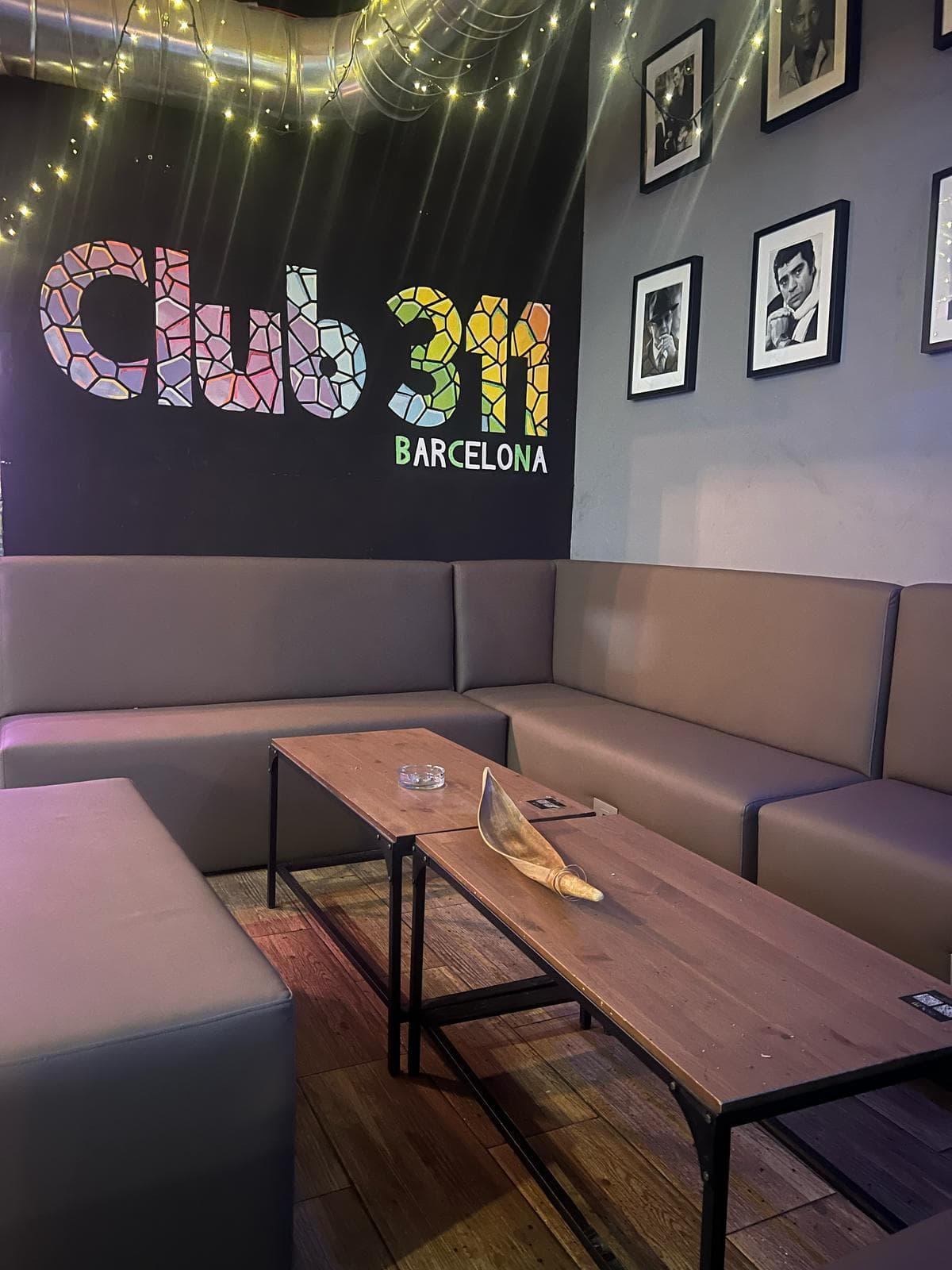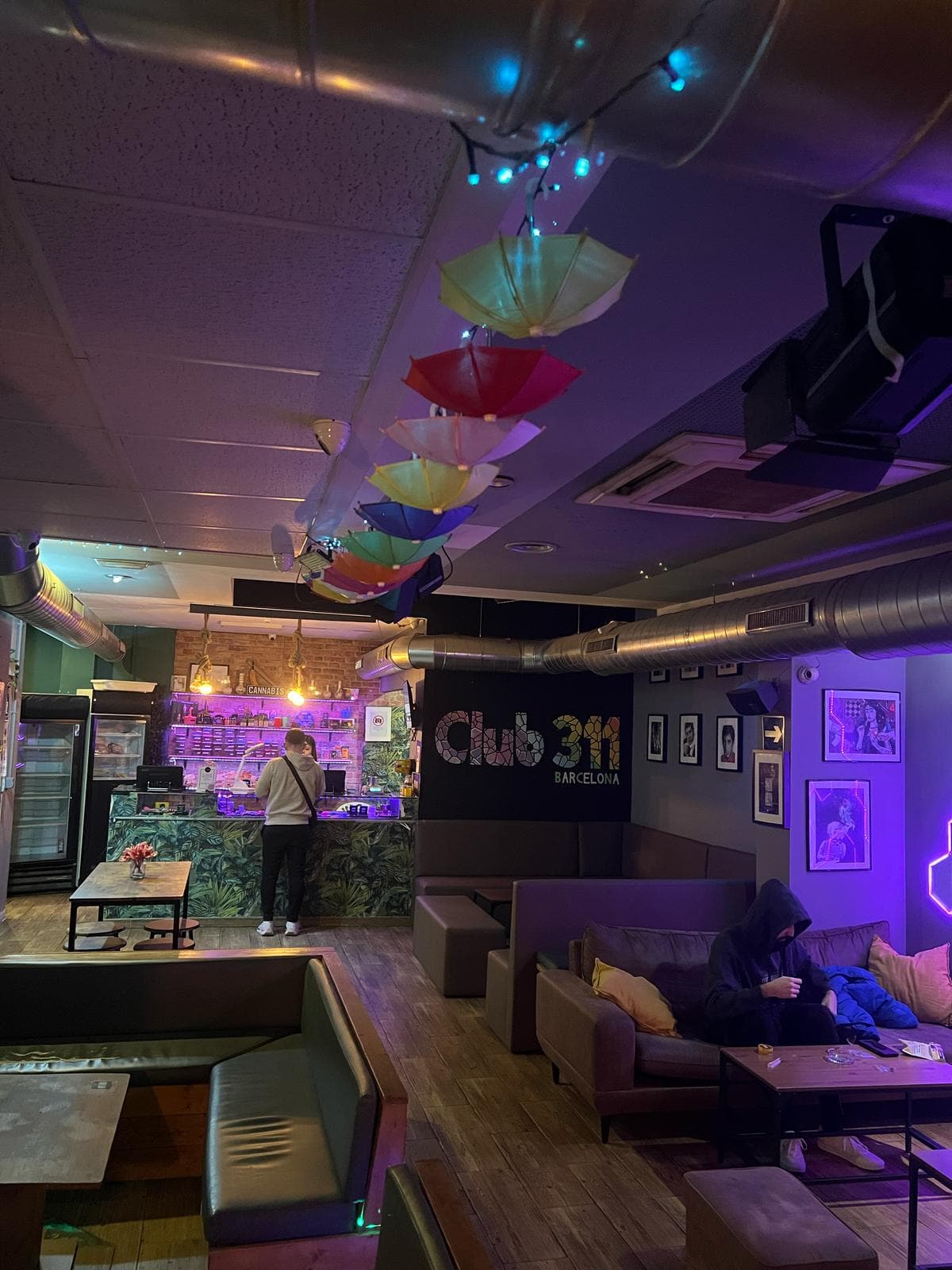Thinking about a European cannabis trip? For decades, Amsterdam was the default destination. However, savvy travelers are now looking to Barcelona, home to a more sophisticated and exclusive cannabis culture. But what’s the real difference between Barcelona's cannabis social clubs and Amsterdam’s famous coffee shops? The distinction is fundamental, rooted in deeply different legal frameworks that create two vastly different user experiences.
One model is built on public access and tourism; the other is built on privacy, community, and quality control. Understanding these differences is the key to choosing the right destination for your needs. This guide breaks down the legalities, user experience, and cultural nuances of each city, explaining why Barcelona's private association model has become the gold standard for a premium cannabis experience.
Table of Contents
- Understanding the Core Legal Difference: Private vs. Public
- The Legal Framework: Spanish Cannabis Laws vs. Dutch Drug Policy
- Barcelona vs. Amsterdam: A Head-to-Head Comparison Table
- Quality, Safety, and Community: Why Barcelona's Model Excels
- Club 311: Thriving Under the Superior Barcelona Model
- Common Misconceptions Debunked
- Frequently Asked Questions
Understanding the Core Legal Difference: Private vs. Public
The most critical distinction lies in the access model. Amsterdam’s coffee shops operate on a public access model. They are commercial businesses open to anyone of legal age (18+) who can walk in off the street and purchase cannabis, much like a bar or café. This is governed by the Dutch policy of gedoogbeleid (tolerance policy).
In stark contrast, Barcelona’s cannabis social clubs are private, non-profit associations. They are not open to the public. To enter, you must become a registered member of that specific association. This membership-only model is a cornerstone of Spanish cannabis social club laws, designed to keep cannabis consumption within a closed, private circle of adults. This immediately creates a more exclusive, controlled, and community-focused environment.
The Legal Framework: Spanish Cannabis Laws vs. Dutch Drug Policy
While both cities are famous for cannabis, their legal foundations are worlds apart.
Spain's Legal Approach (Barcelona):
In Spain, cannabis is decriminalized for personal use in private spaces. The law doesn't explicitly legalize cannabis clubs, but it leverages the constitutional right to private association. This legal gray area allows for the existence of clubs where members collectively contribute to the cultivation and distribution of cannabis for their personal use within the private confines of the club. Key legal points for legal marijuana in Barcelona include:
- Private Consumption Only: Consumption is strictly limited to the private premises of the club.
- Non-Profit Model: Clubs must operate as non-profit associations, with all funds reinvested into the club and its members.
- Membership is Mandatory: A formal membership process is legally required to prove the \private circle\ status.
The Netherlands' Legal Approach (Amsterdam):
The Dutch \tolerance policy\ means that while cannabis remains technically illegal, the authorities choose not to prosecute coffee shops for selling small quantities under strict conditions. This policy was designed primarily for harm reduction.
- Public Sale Tolerated: Coffee shops can sell up to 5 grams of cannabis per person, per day to the public.
- Commercial Operation: They are for-profit businesses catering heavily to the tourist market.
- \Backdoor Problem\: A famous legal paradox where selling to consumers is tolerated, but the coffee shop's supply chain (the \backdoor\) is not, creating legal and quality control issues.
Barcelona vs Amsterdam: A Head-to-Head Comparison Table
| Feature | Barcelona Cannabis Social Club | Amsterdam Coffee Shop |
|---|---|---|
| Access Model | Private Membership Required | Public Access (Walk-in) |
| Legal Status | Non-profit association under right-to-privacy laws | For-profit business under a \tolerance policy\ |
| Atmosphere | Relaxed, lounge-like, community-focused | Often crowded, commercial, tourist-heavy |
| Quality Control | High. Sourced for members, often with better curation. | Variable. Can be high quality but often caters to mass-market tourism. |
| Primary Goal | Provide a safe space for a private community of members. | Sell cannabis commercially to the general public. |
| Discretion & Privacy | Very High. A core principle of the model. | Low. Public-facing commercial establishments. |
| Joining Process | Requires pre-registration, ID verification, and membership fee. | No joining process; simply show ID at the door. |
| Example | Weed Club 311 Barcelona | The Bulldog, Smokey Coffeeshop |
Quality, Safety, and Community: Why Barcelona's Model Excels
While Amsterdam offers convenience, Barcelona’s private model delivers a superior experience for the discerning consumer.
Higher Quality Standards:
Because clubs serve a recurring membership base, there is immense pressure to maintain high quality. Unlike a tourist-focused coffee shop that might never see the same customer twice, a Barcelona club must satisfy its members day after day. This results in better product curation and more knowledgeable staff.
Enhanced Safety and Security:
The private, members-only nature of a cannabis social club creates a much safer and more comfortable environment. Members are vetted, and the atmosphere is one of mutual respect, free from the chaos that can sometimes plague busy tourist spots.
A True Community Feel:
Barcelona clubs are, at their heart, social spaces. They foster a sense of community. Regulars get to know each other and the staff, and clubs often host events like the Weedzza Thursdays and DJ nights at Club 311, creating a genuine social hub.
Club 311: Thriving Under the Superior Barcelona Model
Club 311 Barcelona is the perfect embodiment of why the Barcelona model is superior. We have embraced the principles of privacy, quality, and community to create a premier experience since 2018.
Commitment to Compliance:
We operate in strict adherence to all Spanish cannabis social club laws. Our professional, multi-step membership process ensures we remain a truly private association, protecting both the club and its 10,000+ members.
A Focus on the Member Experience:
Our location near Sagrada Família, extended hours until midnight, and premium interior are all investments back into our community. We don't just provide a space; we provide a sanctuary.
Curated for Quality:
By focusing on our members rather than mass-market sales, we can concentrate on sourcing and providing a consistently high-quality selection of products, guided by expert staff.
Common Misconceptions Debunked
- "Barcelona is less legal than Amsterdam." False. Both exist in unique legal frameworks. Barcelona's model is simply private, which many members find more secure and appealing.
- "It's hard for tourists to join a Barcelona club." False, if you choose the right club. While some clubs are local-focused, establishments like Club 311 specialize in being tourist-friendly, with streamlined online applications.
- "Amsterdam has better weed." Highly debatable. Due to the membership model, many argue that Barcelona's top clubs have surpassed Amsterdam's old guard in consistent quality and craft strains.
Frequently Asked Questions
- So, can I just walk into a club in Barcelona like I can in Amsterdam? Absolutely not. This is the biggest difference. You must apply for membership online and receive an invitation before visiting any legitimate cannabis social club in Barcelona.
- Is public consumption of cannabis legal in either city? No. In both cities, cannabis consumption is restricted. In Barcelona, it is strictly limited to the private confines of your social club. In Amsterdam, it is tolerated inside coffee shops but officially illegal in public spaces, though this is often loosely enforced.
- Which city is better for a first-timer? Barcelona. The guided, community-focused environment of a social club is often far more welcoming and less intimidating for a newcomer than a crowded, transactional Amsterdam coffee shop.
- Why do I have to pay a membership fee in Barcelona? Because clubs are non-profit associations. The fee is your contribution to the collective, funding the club's facilities, staff, and operations. It is not a "purchase" but an investment in the community space.
- How does Club 311 maintain its legal compliance? Through a strict, multi-step verification process, adherence to a non-profit model, and ensuring all consumption remains within our private, secure premises. Our professionalism is your guarantee of safety.
- Are the prices comparable between the two cities? Yes, prices for cannabis products are generally similar. However, many find the value in Barcelona to be higher due to the superior quality and overall experience provided by top clubs.
Choose the Superior Experience in Barcelona
While Amsterdam offers a history of cannabis tolerance, Barcelona represents the future: a legal, safe, and sophisticated model built around community and quality. The private cannabis social club experience is undeniably superior for those who seek more than just a quick transaction.
Club 311 Barcelona stands as a testament to the success of this model. We provide a world-class experience, grounded in the safety and security of Spanish law. Join over 10,000 members who have chosen the refined atmosphere and professional approach of Barcelona's premier social club.
Don't settle for the crowded and commercial. Elevate your experience.
Ready to experience the superior Barcelona model? Apply for your Club 311 membership today and discover the difference a private, premium social club makes.



